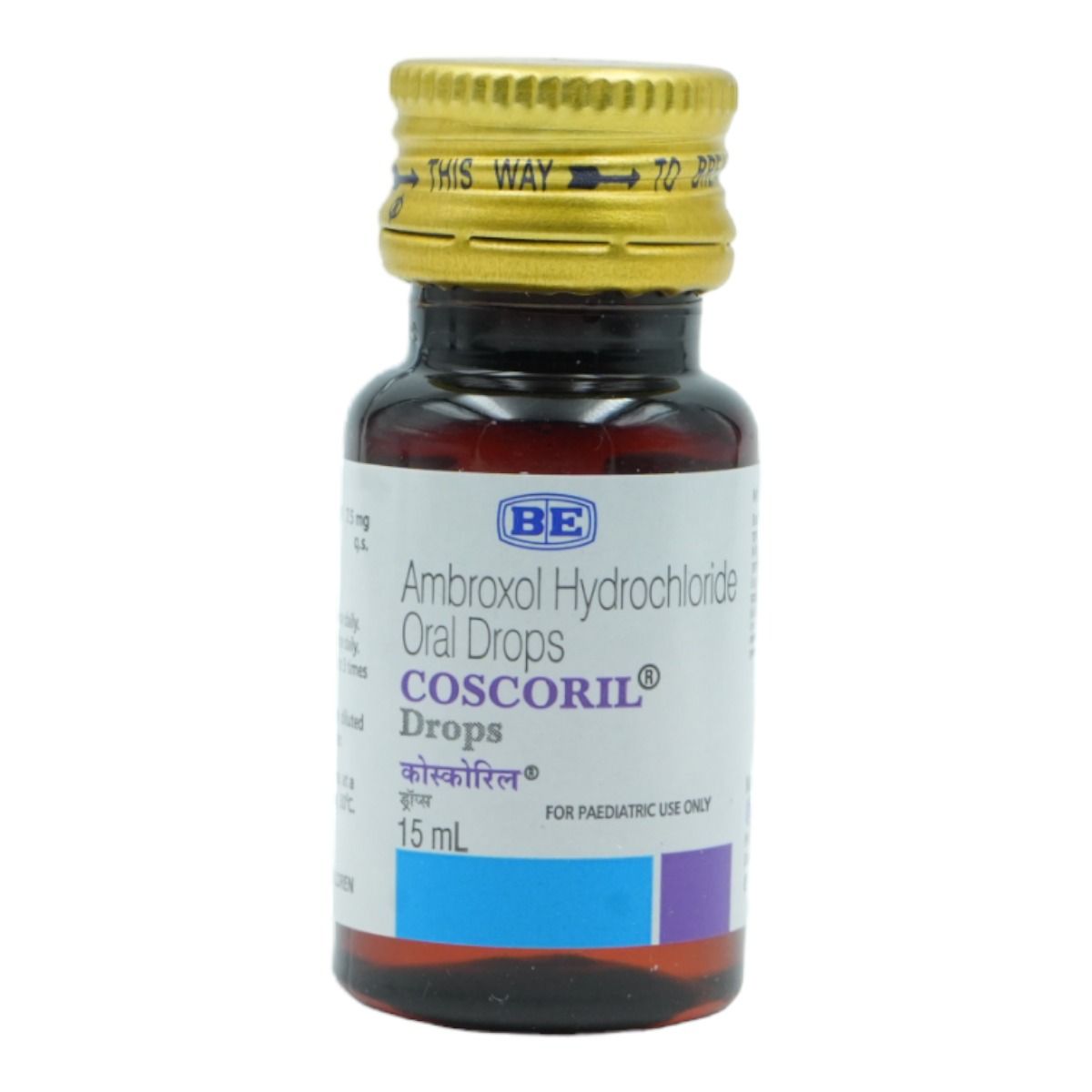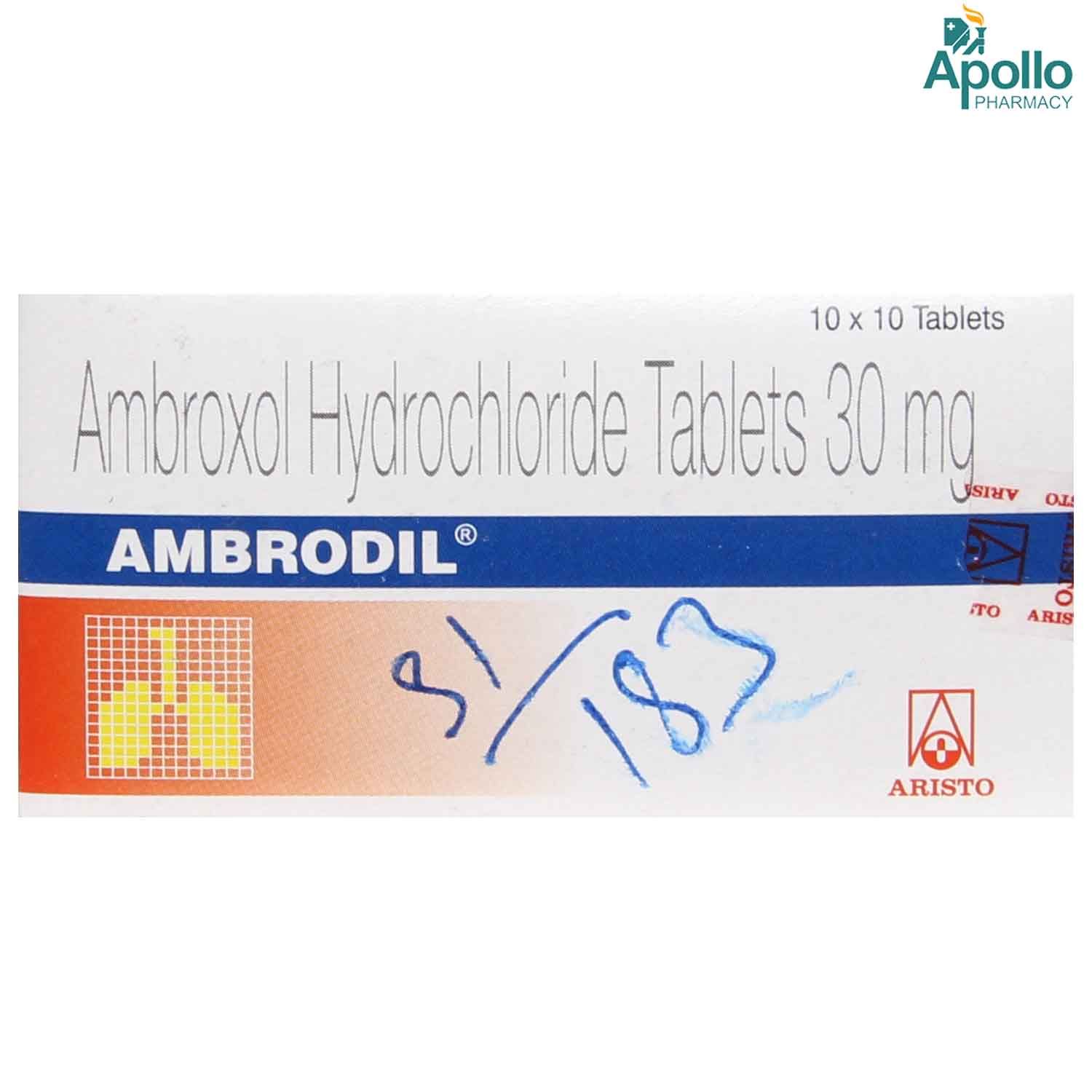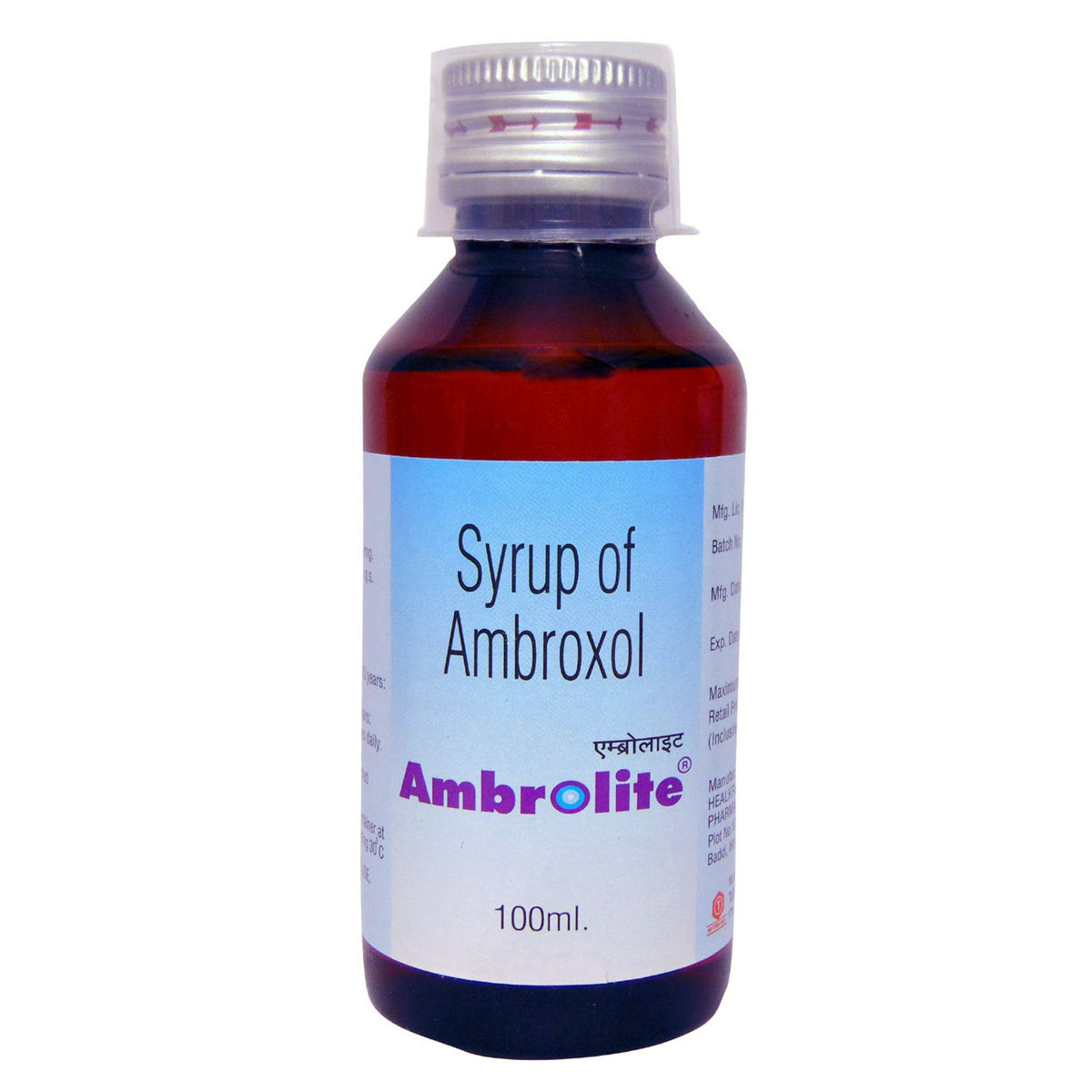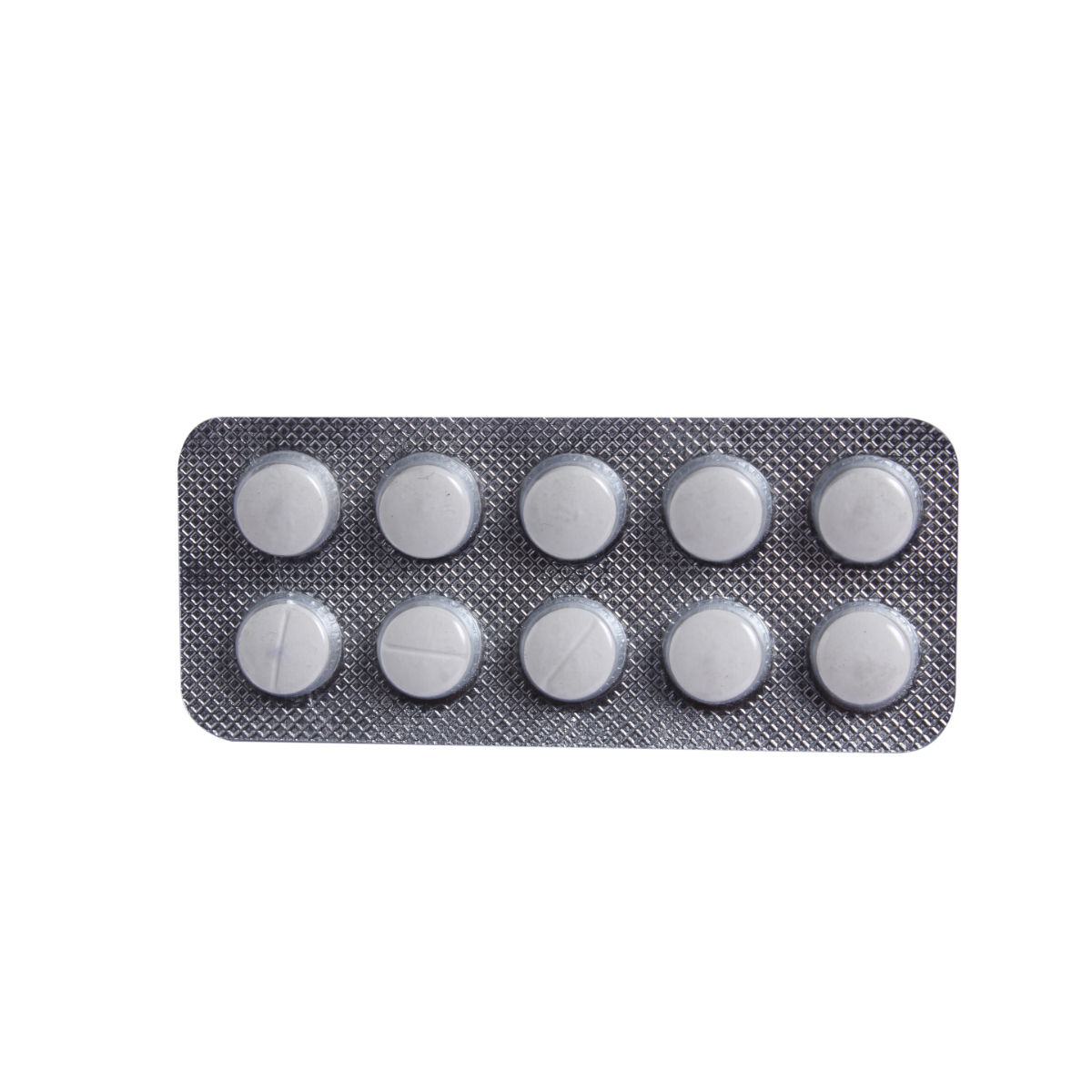Ambroxol
About Ambroxol
Ambroxol is used to treat acute (short term) and chronic (long term) respiratory tract disease, spasmodic bronchostenosis (narrowing of bronchi), abnormal bronchial mucus production in conditions such as emphysema and bronchial asthma. Acute respiratory diseases are initially associated with dry, irritating cough, hoarseness in laryngitis (swelling of the voice box) or burning sensation in the chest due to bronchitis (swelling of the lining of bronchial tubes). Then, wet mucus forms, and continuous coughing out of sputum occurs. In chronic respiratory diseases, both dry, irritating cough and wet cough with mucus occur.
Ambroxol contains Ambroxol that works by thinning and loosening phlegm (mucus) in the lungs, windpipe and nose. Ambroxol breakdown the acid mucopolysaccharide fibres that make the mucous (sputum) thinner and less dense/viscous, removing sputum efficiently by coughing. However, the viscosity of sputum remains low for as long as treatment is maintained.
Use Ambroxol as prescribed. Your doctor will recommend how often you use Ambroxol based on your medical condition. Some people may experience nausea, stomach pain, heartburn, vomiting or constipation. Most of these side effects of Ambroxol do not require medical attention and gradually resolve over time. However, if the side effects persist or worsen, please consult your doctor.
If you are allergic to ambroxol or other ingredients, inform your doctor. Ambroxol should be used with caution in pregnant women and in children below 18 years of age. Ambroxol is not recommended for breastfeeding mothers. In patients with symptoms of chronic impairment of secretion clearance or production, Ambroxol should be used only when advised by a doctor. Talk to your doctor before taking Ambroxol if you have kidney problems or peptic ulcers.
Uses of Ambroxol
Medicinal Benefits
Ambroxol is a mucolytic agent (mucus thinner) that is used to treat acute (short-term) and chronic (long-term) respiratory tract disease, spasmodic bronchostenosis, abnormal bronchial mucus production in conditions such as emphysema and bronchial asthma. Ambroxol helps in making cough less viscous so that it can be coughed out easily in the conditions of acute and recurrent bronchitis (airways infection), laryngitis (voice box infection), and tracheitis (windpipe infection) and chronic diseases like chronic bronchitis and chronic obstructive pulmonary disease (COPD). Thus, it helps in thinning and loosening phlegm (mucus) in the lungs, windpipe, and nose to cough out easily and provide relief from symptoms such as wheezing, coughing, tightness in the chest and shortness of breath. Also, Ambroxol is used to treat secretion disorders in chronic and acute bronchopulmonary infections.
Directions for Use
Storage
Side Effects of Ambroxol
Nausea
Stomach pain
Heartburn
Vomiting
Constipation
Drug Warnings
If you are allergic to ambroxol or other ingredients, inform your doctor. Ambroxol should be used with caution in pregnant women and in children below 18 years of age. Ambroxol is not recommended for breastfeeding mothers. In patients with symptoms of chronic impairment of secretion clearance or production, Ambroxol should be used only when advised by a doctor. Talk to your doctor before taking Ambroxol if you have kidney problems or peptic ulcers.
Drug Interactions
Drug-Drug Interaction: Ambroxol may interact with antibiotics (amoxicillin, cefuroxime, and erythromycin) and cough suppressants (codeine, pholcodine, dextromethorphan).
Drug-Food Interaction: No interactions found.
Drug-Disease Interaction: If you have stomach ulcers, epilepsy (fits), ciliary dyskinesia (lung problem), or kidney impairment, inform your doctor before using Ambroxol.
Drug-Drug Interactions Checker List:
Safety Advice

Alcohol
cautionInteraction of alcohol with Ambroxol is unknown. Please consult a doctor before consuming alcohol while using Ambroxol.

Pregnancy
cautionAmbroxol is generally not recommended for use in pregnancy. However, if you are pregnant, inform your doctor before using Ambroxol.

Breast Feeding
unsafeAmbroxol is not recommended for breastfeeding mothers. If you are breastfeeding, consult your doctor before using Ambroxol.

Driving
safe if prescribedAmbroxol usually does not affect your ability to drive or operate machinery.

Liver
cautionUse Ambroxol with caution, if you have a history of liver problems. Your doctor may adjust the dose if necessary based on your condition.

Kidney
cautionTake Ambroxol with caution, if you have kidney disease. Your doctor may adjust the dose if necessary based on your condition.

Children
cautionAmbroxol should be used with caution in children below 12 years of age.
Habit Forming
Diet & Lifestyle Advise
Avoid dairy products such as milk as it may increase mucus production. Also, avoid processed or refined foods to have relief from cough. Instead replace baked foods, fried foods, white bread, white pasta, French fries, sugary desserts and chips with green leafy vegetables.
Drink plenty of fluids to avoid a dry throat while you have cough.
Avoid citrus fruits as they may worsen the cough. Eat fruits that are rich in water content such as pears, watermelon, peaches and pineapples.
Patients Concern
Disease/Condition Glossary
Acute respiratory tract disease: Acute respiratory tract diseases are initially associated with dry, irritating cough, hoarseness in laryngitis (swelling of the voice box), or burning sensation in the chest due to bronchitis (swelling of the lining of bronchial tubes). Then, wet mucus forms, and continuous coughing out of sputum occurs. In chronic respiratory diseases such as chronic obstructive pulmonary disease and chronic bronchitis, both dry irritating cough and wet cough with mucus occur.
FAQs
Ambroxol is used to treat acute (short-term) and chronic (long-term) respiratory tract disease, spasmodic bronchostenosis (narrowing of bronchi), and abnormal bronchial mucus production in conditions such as emphysema and bronchial asthma.
Ambroxol contains Ambroxol that works by thinning and loosening phlegm (mucus) in the lungs, windpipe and nose. Ambroxol breakdown the acid mucopolysaccharide fibres that make the mucous (sputum) thinner and less dense/viscous removing sputum efficiently by coughing. However, the viscosity of sputum remains low for as long as treatment is maintained.
Ambroxol is not recommended for patients suffering from epilepsy (fits) as it may worsen the condition. Therefore, inform your doctor if you are suffering from epilepsy before using Ambroxol.
Ambroxol may cause allergic skin reactions in some people. It is not necessary for everyone taking Ambroxol to have skin reactions. However, if you notice a skin rash, stop taking Ambroxol and consult a doctor immediately.
You are not recommended to take antitussives (cough suppressants), such as codeine, pholcodine or dextromethorphan while using Ambroxol as it may impair expectoration of liquefied bronchial mucus and cause accumulation of secretions. However, you are recommended to consult a doctor before using other medicines with Ambroxol.
No, you are not recommended to stop using Ambroxol without consulting your doctor as it may worsen the cough or cause recurring symptoms. Therefore, use Ambroxol for as long as your doctor has prescribed it and if you experience any difficulty while taking Ambroxol, please consult your doctor.










